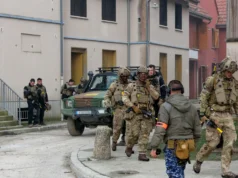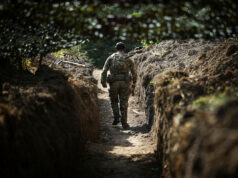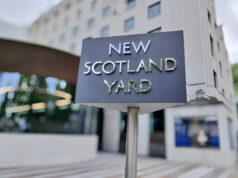There are an estimated 250,000 child soldiers in the world today. These children, some as young as 8 years old, are forced to serve in both government and militant groups. Boys are given weapons and forced to commit horrific acts of war, while girls are taken to be used as sex slaves.
In February of this year Wasil Ahmad was gunned down outside his home. The attack was an unfortunately common occurrence in Afghanistan, a Taliban assassination aimed at someone believed to have colluded with the Government. Except that Wasil wasn’t a policeman or a politician, he was a ten year old boy on his way to primary school.
Ahmad had taken up arms after his father’s death, spurred on and equipped by Afghan police. He was credited with helping to break the Taliban siege in Uruzgan Province, just North of Kandahar. Rafiullah Baidar, a spokesperson for the Afghan Independent Human Rights Commission, laid the blame for the assassination at the door of the police. Social media was flooded with pictures of the boy wearing military equipment, all looking comically oversized on the ten year-old. Baidar believes this made the boy a target, an act he describes as “illegal”.

Wasil’s story is one of the more visible examples from Afghanistan where both the Taliban and Government forces are accused of using child soldiers. The UN reported the highest number of child casualties in 2015 since they started recording civilian casualties in the conflict. Afghanistan isn’t the only country where children are forced to fight. The Lord’s Resistance Army, operating in the Democratic Republic of Congo and the Central African Republic, is believed to have abducted over 30,000 children to use as soldiers. These children are forced to commit killings, and those who refuse are themselves murdered.
Definition of a child soldier
A child associated with an armed force or armed group refers to any person below 18 years of age who is, or who has been, recruited or used by an armed force or armed group in any capacity, including but not limited to children, boys and girls, used as fighters, cooks, porters, spies or for sexual purposes.
In 2015 Yemen descended into civil war as Houthi forces seek to oust President Hadi, who has the support of the UN. Yemen is the poorest country in the Middle East, with 54% of the population living below the poverty line. Houthi rebels have capitalised on this to recruit child soldiers, offering boys up to 500 Rials a day (~£1.50) a day and hot meals in exchange for their loyalty. Unicef believe that up to a third of the Houthi forces are made up of children below the age of 15. However, the Yemeni government has also used child soldiers in the past. In 2011 Human Rights Watch interviewed 20 members of the Army’s First Armoured Division who were under the age of eighteen. Officers from the Division stated that they would regularly recruit fifteen year olds, and would occasionally make “exceptions” by recruiting younger children.
The list of countries where Unicef believe children are at risk of being used as soldiers goes on, with Libya, Chad, India, Pakistan and Thailand all believed to currently use child soldiers.
The Rome Statute, responsible for establishing the International Criminal Court, criminalises the recruitment of child soldiers. Article 8 of the Statute defines War Crimes and states that:
Conscripting or enlisting children under the age of fifteen years into
the national armed forces or using them to participate actively in
hostilities.
constitutes such a crime. Attempts to prosecute those responsible are few and far between due to the difficulties in proving an individual was directly responsible for the crime.

Efforts to end the problem of child soldiers have stepped up in recent years. The UK-based charity War Child believes the issue requires a social and political solution. The charity says work must be undertaken to protect children and educate them. The UN campaign Children, not Soldiers has agreed Action Plans with eight countries to work towards ending the abuse of children in military roles. The campaign has broad international support, with endorsements from both the General Assembly and Security Council. Positive steps have been taken, with Myanmar releasing 745 children and young people from their army since 2012.












